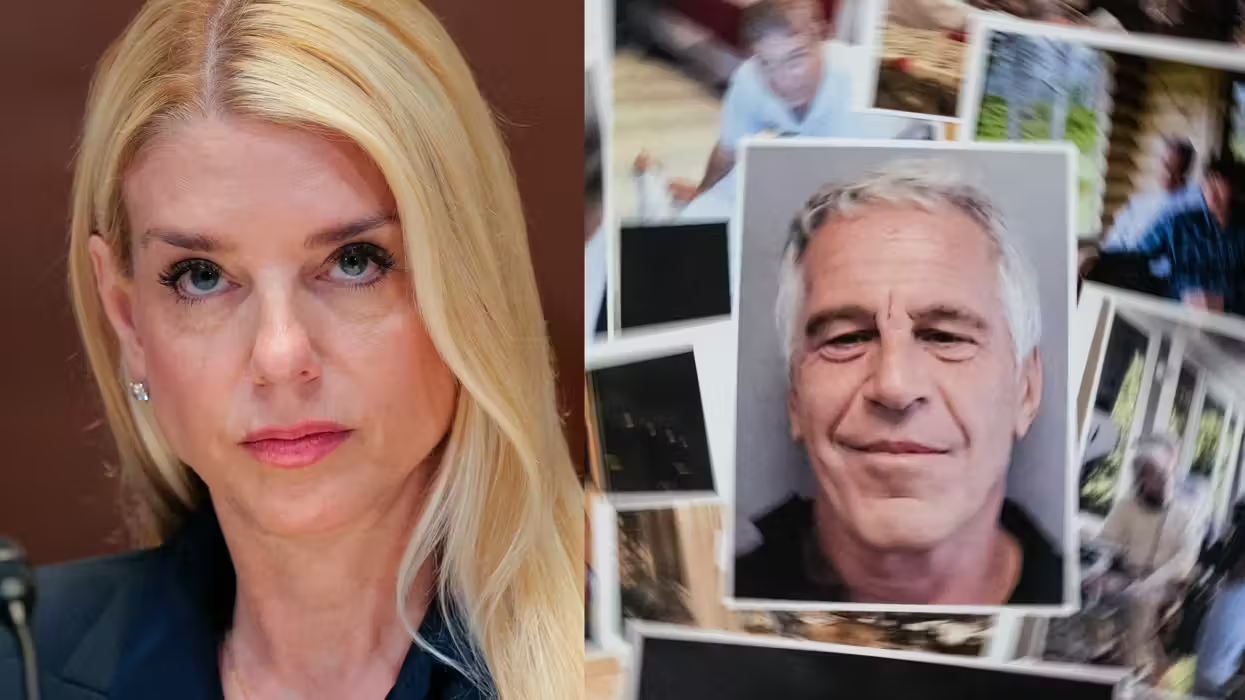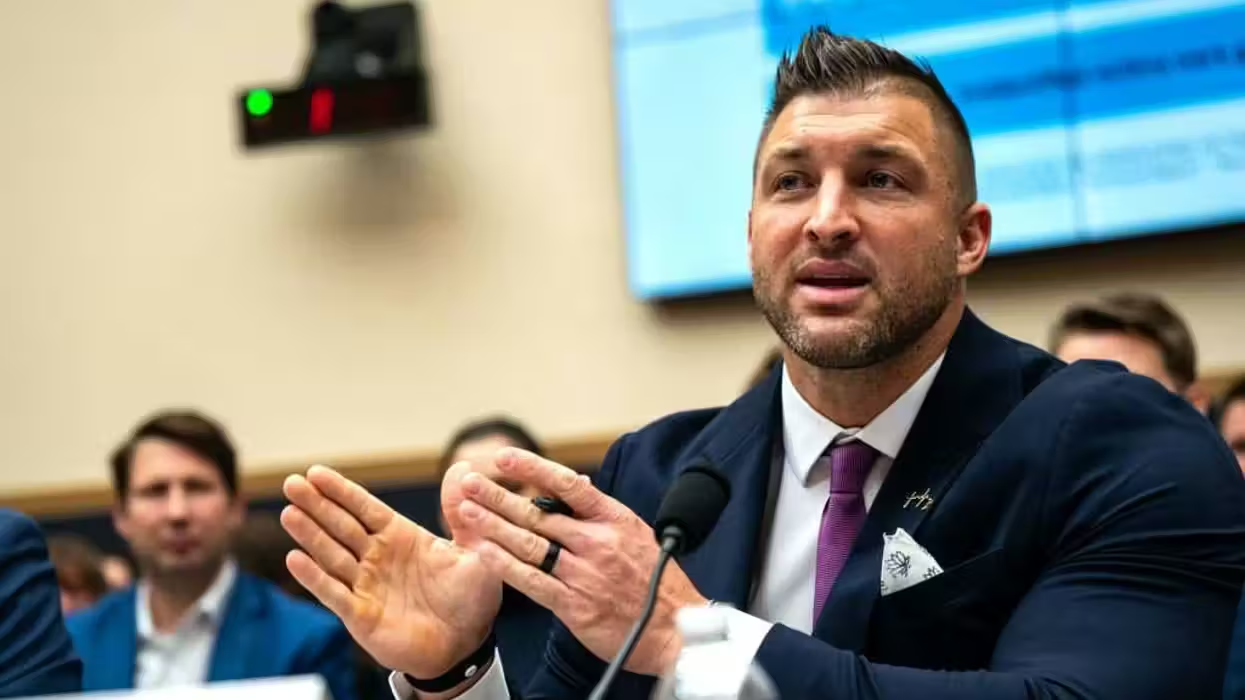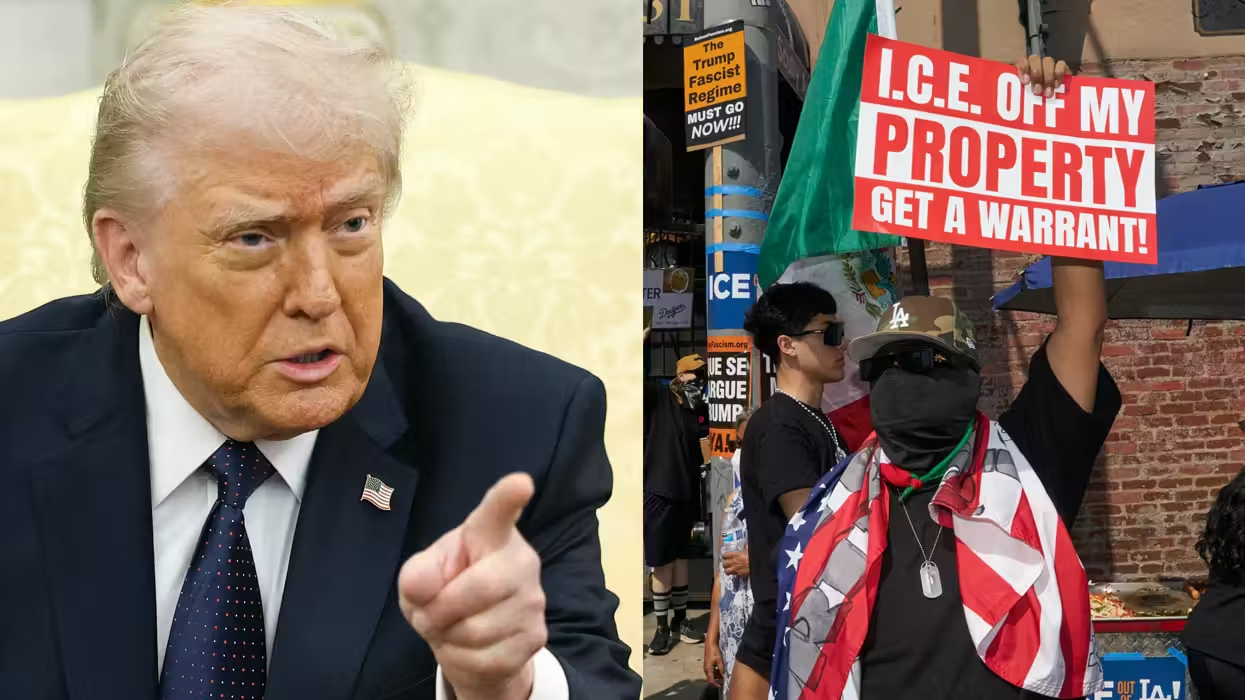Graffiti artists were awarded $6.75 million in damages by a federal judge Monday after the owner of the New York City property displaying the revered murals — which had risen to "recognized stature" — painted over them in 2013, the Washington Post reported.
 Image source: YouTube screenshot
Image source: YouTube screenshot
But the case surrounding the famed 5Pointz "graffiti mecca," as the Post called it, doesn't appear to be as open and shut as the rights of property owners versus the rights of graffiti artists who paint on walls they don't own.
When did the graffiti begin?
In the 1990s, property owner Gerald Wolkoff rented studios in the Long Island City, Queens, warehouse to local artists and began letting graffiti artists spray paint on the building walls, the paper reported.
One tenant and artist, Jonathan Cohen, organized a system in which graffiti artists competed for wall space, the Post said, citing court documents. Wolkoff let artists paint whatever they wanted — as long as religion, politics and sex weren't on display, the paper said.
Soon artists from all over the world descended upon 5Pointz, and the increasingly colorful spot became a favorite backdrop for movies, music videos, weddings and concerts, the Post reported — and became culturally recognized as well.
What changed?
When Wolkoff embarked on plans to replace the warehouses with high-rise luxury condos, the graffiti artists didn't like that too much, the paper said.
 Image source: YouTube screenshot
Image source: YouTube screenshot
Cohen's application with the City Landmark Preservation Commission was rejected because the graffiti was too recent, the paper said. Cohen's attempt at a preliminary injunction against Wolkoff under the Visual Artists Rights Act was denied in court, but it did say an opinion would come within eight days, the Post reported.
But before those eight days were over, Wolkoff ordered the graffiti painted over — and a year later the structure was torn down, the paper said.
How did artists react?
Artist Akiko Miyakami said when she saw her work painted over, she felt as though she "was raped," the Post reported, citing court documents.
Here's how Cohen reacted:
What happened in court?
A U.S. District Court jury found in November that 36 of the 40 graffiti murals at 5Pointz should be protected under the federal Visual Artists Rights Act and had achieved “recognized stature," the paper said.
The ruling was a recommendation for the presiding federal Judge Frederic Block, who ruled Monday that another nine artistic works should be protected by law, bringing the total to 45, and that 21 artists should get nearly $7 million in damages — the maximum amount allowable, the Post reported.
 Image source: YouTube screenshot
Image source: YouTube screenshot
Block said Wolkoff “willfully” ruined the artwork and showed no remorse for his “recalcitrant behavior," the paper said.
“He was bent on doing it his way, and just as he ignored the artists’ rights he also ignored the many efforts the Court painstakingly made to try to have him responsively answer the questions posed to him,” Block added in his opinion, according to the Post. “Wolkoff has been singularly unrepentant.”
 Image source: YouTube screenshot
Image source: YouTube screenshot
What was the argument from the building's owner?
Wolkoff and his lawyer argued that the artists knew for years that the buildings would be demolished and that artists themselves got rid of thousands of short-term murals to make room for new ones on a rotating basis, the paper reported, citing court documents. Other graffiti displays were deemed permanent, however, the paper added.
What else did the judge say?
But Block observed that Wolkoff could have at least warned the graffiti artists, who in turn could have "easily rescued” some paintings, the Post reported.
“The sloppy, half-hearted nature of the whitewashing left the works easily visible under thin layers of cheap, white paint, reminding the plaintiffs on a daily basis what had happened,” the judge added, according to the paper.
“The shame of it all is that since 5Pointz was a prominent tourist attraction the public would undoubtedly have thronged to say its goodbyes during those 10 months and gaze at the formidable works of aerosol art for the last time,” Block also wrote, the paper said. “It would have been a wonderful tribute for the artists that they richly deserved.”
 Image source: YouTube screenshot
Image source: YouTube screenshot
David Ebert, a lawyer for Wolkoff, did not return a call from the New York Times seeking comment.
Eric Baum, a lawyer for the artists, told the Times the judgment is “a victory not only for the artists in this case, but for artists all around the country.”
“The clear message is that art protected by federal law must be cherished and not destroyed,” Baum added to the Times. “With this win, the spirit of 5Pointz becomes a legacy for generations of artists to come.”

 Image source: YouTube screenshot
Image source: YouTube screenshot
 Image source: YouTube screenshot
Image source: YouTube screenshot
 Image source: YouTube screenshot
Image source: YouTube screenshot
 Image source: YouTube screenshot
Image source: YouTube screenshot
 Image source: YouTube screenshot
Image source: YouTube screenshot






